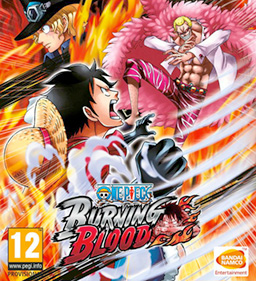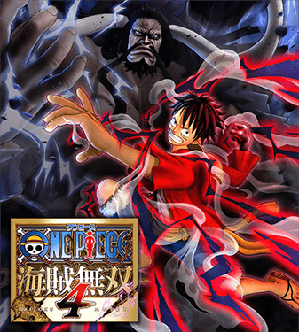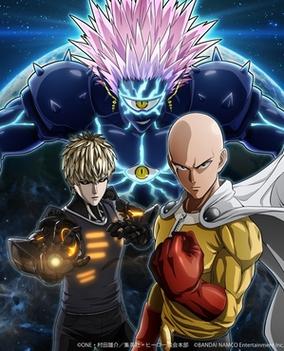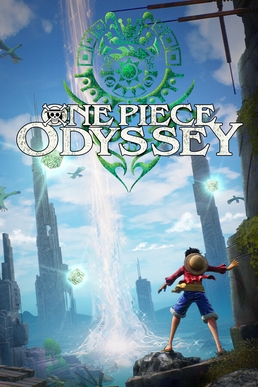
The Tales series is a franchise of fantasy role-playing video games published by Bandai Namco Entertainment, and developed by its subsidiary, Namco Tales Studio until 2011 and presently by Bandai Namco Studios. First begun in 1995 with the development and release of Tales of Phantasia for the Super Famicom, the series currently spans seventeen main titles, multiple spin-off games and supplementary media in the form of manga series, anime series, and audio dramas.

Bandai Namco Entertainment Inc. is a Japanese multinational video game publisher owned by Bandai Namco Holdings. It was founded in 2006 as Namco Bandai Games Inc., following the 2005 merger of Namco and Bandai. Namco acquired Bandai's video game business division through a corporate split. In 2009, Bandai Namco Games absorbed Bandai Networks. It is headquartered in Minato, Tokyo.

CyberConnect2 Co., Ltd. is a Japanese video game development studio mostly known for its work on the .hack series, along with a series of fighting games based on the Naruto franchise. They are also known for creating the Little Tail Bronx series. In 2016, they expanded their workforce into the international market by opening a studio in Montreal, Canada.

God Eater 2 is a video game developed by Shift and published by Bandai Namco Entertainment on November 14, 2013, in Japan for PlayStation Portable. It is a sequel to God Eater. It features a new setting, as well as new protagonists, new monsters, and new weapons. An expansion titled God Eater 2: Rage Burst was released in Japan on the PlayStation Vita and PlayStation 4. It was released in Western territories in summer 2016 with North American and European divisions of Bandai Namco Entertainment publishing the game on PlayStation 4, PlayStation Vita, and Microsoft Windows.

Tales of Xillia 2 is an action role-playing game for the PlayStation 3 released on November 1, 2012, in Japan. It is the fourteenth core product in the Tales series and was developed and published by Bandai Namco Games. The game was localized for North America and Europe in August 2014.

Bandai Namco Studios Inc. is a Japanese video game developer headquartered in Kōtō, Tokyo. Its offices in Malaysia and Singapore, Bandai Namco Studio Malaysia and Bandai Namco Studios Singapore, are based out of Selangor, Malaysia and Infinite Studios, Singapore respectively. Bandai Namco Studios is a subsidiary of Bandai Namco Entertainment, which itself is a subsidiary of Bandai Namco Holdings. The company works under its parent company as a keiretsu; Bandai Namco Studios creates video games for home consoles, handheld systems, mobile devices and arcade hardware, while Bandai Namco Entertainment handles the managing, marketing and publishing of these products.
Lost Reavers was a free-to-play multiplayer online game developed and published by Bandai Namco for the Wii U. The game was distributed via Nintendo eShop, and took advantage of the Nintendo Network. A public beta test was being held in Japan from 3 September until 13 September, followed by the title's commercial release on 2 December 2015. The game also released internationally on 28 April 2016. As of 30 May 2019, the game’s servers have been shut down.

Tales of Berseria is an action role-playing video game developed and published by Bandai Namco Entertainment for PlayStation 3, PlayStation 4, and Windows. It is the sixteenth main entry in the Tales series and a prequel of Tales of Zestiria. It was released in Japan for PlayStation 3 and PlayStation 4 in mid-August 2016, and was released worldwide for PlayStation 4 and Windows in late January 2017. A manga adaptation of this game was serialized on Ichijinsha's Monthly Comic Rex Magazine since October 2016. The third and last volume was published August 2018 with an English translation finishing April 2020.

Sword Art Online: Hollow Realization is a video game developed by Aquria and published by Bandai Namco Entertainment for the PlayStation 4, PlayStation Vita, and Windows PC, based on the Japanese light novel series, Sword Art Online. It is the fourth video game in the series and the successor to Sword Art Online: Lost Song. Hollow Realization was released on October 27, 2016, in Japan, and on November 8, 2016, for North American and European territories. A Nintendo Switch version of the game was released on April 25, 2019, in Japan, and worldwide on May 24, 2019.

One Piece: Burning Blood is a fighting video game developed by Spike Chunsoft and published by Bandai Namco Entertainment. Based on the One Piece franchise, it was released for PlayStation 4, PlayStation Vita, Xbox One, and Windows. It is the first One Piece video game to be released on an Xbox video game console. It was released in Japan on April 21, 2016, in North America on May 31, 2016, and in Europe on June 3, 2016. The Windows version was released in North America on September 1, 2016, and in Europe on September 2, 2016. The game was not released for Xbox One in Japan.

Ni no Kuni II: Revenant Kingdom is an action role-playing game developed by Level-5 and published by Bandai Namco Entertainment. The game is a sequel to Ni no Kuni: Wrath of the White Witch, and was released for PlayStation 4 and Windows on March 23, 2018. The game was later released for the Nintendo Switch on September 17, 2021, and for Xbox One and Xbox Series X/S on March 21, 2023.
B.B. Studio Co., Ltd. is a Japanese video game development company. The company is a result of a merger between BEC and Banpresoft by their parent company, Bandai Namco Entertainment.

Twin Mirror is a 2020 adventure game by Dontnod Entertainment. Co-produced with Shibuya Productions, the game was released for PlayStation 4, Windows, and Xbox One on 1 December 2020. It received mixed reviews from critics.

God Eater 3 is an action role-playing game developed by Bandai Namco Studios and Marvelous and published by Bandai Namco Entertainment. The third main entry in the God Eater series, the game was released for PlayStation 4 in Japan in December 2018, and worldwide in February 2019 for PlayStation and Microsoft Windows, with a Nintendo Switch version released in July 2019.

One Piece: Pirate Warriors 4 is an action-adventure video game developed by Omega Force and published by Bandai Namco Entertainment for Nintendo Switch, PlayStation 4, Windows, and Xbox One. It is the fourth installment in Pirate Warriors video-game series, based on the One Piece franchise. It is a sequel to the 2015 game One Piece: Pirate Warriors 3. It was released on March 27, 2020.

One-Punch Man: A Hero Nobody Knows is a fighting RPG video game developed by Spike Chunsoft and published by Bandai Namco Entertainment on February 28, 2020, for PlayStation 4, Windows, and Xbox One. The game is based on the manga series One-Punch Man.

Namcot Collection, also known as Namco Museum Archives, is a 2020 video game compilation published by Bandai Namco Entertainment. Originally released in Japan for the Nintendo Switch, it was localized for international territories as two separate collections, Namco Museum Archives Vol. 1 and Vol. 2, for the Switch, Xbox One, PlayStation 4, and Windows. Namcot Collection includes a wide array of video games published by Namco for the Family Computer and Nintendo Entertainment System, with save states, achievements, and homebrew ports of Pac-Man Championship Edition and Gaplus.

One Piece Odyssey is a 2023 role-playing video game developed by ILCA and published by Bandai Namco Entertainment. A part of the One Piece franchise, it was released for PlayStation 4, PlayStation 5, Windows, and Xbox Series X/S. It is also set to release for Nintendo Switch in July 2024.
















